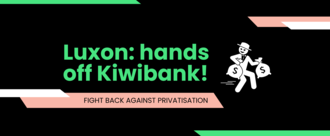-
ASB KiwiSaver divest from illegal Israeli settlements or we switch!All people should enjoy freedom, justice and equality. That includes Palestinians. Israel is occupying and colonising Palestinian land, and maintains an apartheid system of discrimination against Palestinians in the Occupied Palestinian Territories in violation of international law. We support the simple principle that Palestinians are entitled to the same rights as the rest of humanity, as called for by the Palestinian-led BDS movement. Israel is only able to maintain its apartheid regime and to expand its illegal settlements because of material support from the international community, including through unethical investments by global financial institutions (including ASB and other New Zealand banks and funds). According to research by Mindful Money, KiwiSaver funds' investments in companies financing and constructing illegal Israeli settlements in Palestine and arming Israel were up 20% in the first 5 months after October 2023. The research showed that our KiwiSavers have an estimated $200 million collectively invested in these companies. Many of our KiwiSaver funds are invested in companies that are involved in Israel’s illegal occupation, meaning that through our retirement savings we are inadvertently helping to finance of Israel’s system of apartheid, the expansion of illegal settlements in the Westbank and East Jerusalem, and the genocide of the people of Gaza. What can you do about it? It’s time we pressure our KiwiSaver providers, beginning with ASB, to stop financing Israel’s apartheid, ongoing colonisation and genocide and divest from the illegal settlements. Together we can get them to do the right thing. • Are you an ASB customer? Sign the petition and use your power to demand that ASB divest - or else you will switch to another provider. But don’t switch yet - while you’re still a customer you have power to pressure ASB - keep the pressure on till 29 November when everyone will switch together if they haven’t divested from Israel. • Not a ASB customer? Sign the petition and share to help bring others on board to demand action from ASB. Boycott action works - and is a powerful tool we can use to make big companies realise the cost of doing business with an apartheid state. Why ASB? Of all of New Zealand’s KiwiSaver funds, ASB has the most investments in Motorola Solutions Inc. Motorola Solutions Inc provides telecommunications, surveillance and military technology to the Israeli military and illegal Israeli settlements - effectively operating as the IDF’s technology arm and enabling the maintenance and expansion of these settlements. The company also provides technology for operating Israel’s checkpoints and separation wall, two key pieces of Israel's apartheid infrastructure.[1] https://www.whoprofits.org//writable/uploads/old/uploads/2018/06/old/bab_al_shams_-_ahmad_al_bazz.jpg Motorola Solutions Inc. have been included in the UN List businesses involved in activities that help maintain/enable Israeli settlements, which are illegal under international law. [2] ASB has $14 million invested in Motorola Solutions Inc., making their KiwiSaver fund one of the biggest investors in the occupation in the top 10 KiwiSaver providers. While many KiwiSaver funds are complicit in Israeli crimes, we have identified ASB as the #1 Most Unethical KiwiSaver for those who care about Palestinian human rights. The International Court of Justice – the world’s highest court – recently declared that states, international organisations, investment corporations and all other institutions must not assist in maintaining the illegal situation created by Israel in the Occupied Palestinian Territories.[3] ASB is currently complicit in Israel’s violations of human rights and international law through its investments in Motorola Solutions Inc. To avoid being an accomplice to this illegal activity, ASB must divest from Israeli apartheid. BDS works! In calling on ASB to divest from Motorola Solutions Inc. we are taking the lead from the Palestinian call for Boycott, Divestment and Sanctions as a form of non-violent pressure on Israel. Both globally and here in Aotearoa, companies are realising that the investments in companies that sustain Israel's apartheid are unethical and are divesting. NZ Super Fund, KiwiSaver provider Simplicity, and most recently Ireland’s sovereign investment fund and French Insurance giant AXA have all divested from services due to their role in illegal settlements. Public pressure works! We won’t stop with ASB’s investments in Motorola… ASB and other New Zealand banks and KiwiSaver providers continue to maintain investments in other companies directly or indirectly involved in the maintenance and expansion of the illegal settlements, listed in the UN database.[4] So we are also calling on ASB and all other New Zealand banks and KiwiSaver providers to adopt policies that prohibit investments in the companies identified by the UN and get rid of any existing investments in these companies. These financial institutions are on notice that we don’t want our money invested in Israel’s discrimination and colonisation. If they continue to bank on apartheid, we’ll stop banking with them! It is more urgent and important than ever that our voices are heard loud and clear by decision-makers and to encourage others to join our growing movement. References: [1] https://www.whoprofits.org/companies/company/3808? and https://wiki.stoparmingisrael.nz/motorola [2] OHCHR update of database of all business enterprises involved in the activities detailed in paragraph 96 of the report of the independent international fact finding mission to investigate the implications of the Israeli settlements on the civil, political, economic, social and cultural rights of the Palestinian people throughout the Occupied Palestinian Territory, including East Jerusalem [30 June 2023]. [3] Legal Consequences Arising from the Policies and Practices of Israel in the Occupied Palestinian Territory, including East Jerusalem (Advisory Opinion) [2024]. [4] See for example: kiwisaver_investments_israel – Stop Arming Israel (stoparmingisrael.nz). Photo credit: Motorola communication device used by the Israeli Police during the dispersal of a Palestinian demonstration Bab Al Shams, E1 Area | Jan 2013 | Photographed by Ahmad Al-Bazz, Activestills.8,802 of 9,000 Signatures
-
It's Time for a Capital Gains Tax!We all want thriving schools and early childcare centres, warm and dry homes, and a strong healthcare system. We get these vital public services through sharing our resources into a collective pool – this pool is our tax system: we all contribute, so that we can all flourish. But right now, our public services are crumbling. The combination of successive governments not allocating enough resources to them, while at the same time allowing the wealthy to avoid contributing their fair share, means our public services can't meet our collective needs. As a result we’re struggling to build new hospitals or get new ferries, or hire enough nurses, doctors, teachers and social workers. IRD research shows that the 311 wealthiest families in Aotearoa effectively pay 9.4% of their overall income in taxes, while the majority of everyday people pay over 20%.(1) This isn’t right. A capital gains tax is an important pillar of a balanced tax system that ensures everyone contributes a fair share of the income they make to the collective pool. By increasing the resources going back into the pool, we will then be able to allocate more to our public services - our schools, hospitals and more. Right now, income from selling assets isn't taxed like our income from salary or wages. This means that a lot of wealthy people who make money from buying and selling assets, like investment properties, don't contribute a fair amount of the profits they make to our collective resource pool. Buying and selling homes is being treated as a get-rich-quick scheme for people who already have access to wealth. For example, a person can sell a home that they don’t even need to live in and instantly make four times what an average person earns during a year, without paying any tax at all. (2) This is very different to the vast majority of countries worldwide, including all of those we most frequently compare ourselves to, who already have a capital gains tax in place.(3) We are lagging behind. Polling last year showed that a majority of people in Aotearoa are in favour of a capital gains tax - while support continues to grow across different sectors calling for this to change, most recently from ANZ CE Antonia Watson, Mainfreight Founder Bruce Plested and PWC tax partner Sandy Lau. (4) (5) It’s time to strengthen our collective pool so we can allocate the resources our public and community services need to help families and communities flourish! References: 1. IRD High Net Worth Individuals Research Project 2023 2. Christopher Luxon expected to make a capital gain of $295,000 from selling one of his seven properties this month 3. PWC - Global CGT Rates 4. Media Release: Poll Shows Clear Support for Tax Reform 5. A roll call of all the people championing a capital gains tax. Spinoff6,865 of 7,000 Signatures
-
Don’t cast us adrift! Ensure Cook Strait ferries can carry trains.The ageing Interislander ferries must be replaced. We believe it’s crucial that new ferries are rail-enabled and publicly owned, letting rail freight and equipment move easily between the North and South Islands. Without rail-enabled ferries, the two islands’ rail networks will be disconnected, restricting the movement of goods and putting the South Island’s whole rail network at risk. Current and future passenger rail services also rely on a viable national rail network. The government said in its transport policy statement that it would prioritise making the best use of existing transport infrastructure. The only decision consistent with this policy is to ensure future ferries are rail-enabled and remain in public ownership.8,894 of 9,000 SignaturesCreated by Patrick Rooney

-
Demand the Government support people experiencing homelessness!Everyone should have access to decent, secure and permanently affordable housing. But right now, many people in our communities are experiencing homelessness – living on couches, in cars, in overcrowded houses and in unhealthy and unsafe conditions. For too long people in government have chosen not to allocate resources to public housing, while prioritising policies that encourage property speculators to buy up huge amounts of houses. As a result home ownership and access to decent, secure and affordable housing has become harder and harder for everyday people. This Government's recent decision to make access to emergency housing more difficult, is increasing the harm and risk of homelessness in our communities[1]. These policy changes were able to be implemented because there is currently no legislative responsibility on government agencies to support someone who is at-risk of homelessness. In the midst of a housing crisis, where there is already not enough decent and stable housing available within our communities, this Government has chosen to stall public housing builds across the country[2], cancel funding for youth housing services[3], and reduce access to emergency housing. These policies push the burden of responsibility for homelessness on individuals, rather than addressing the complex and systemic challenges that enable homelessness to occur. Together these policies will deepen the housing crisis Aotearoa is facing. Duty to Assist legislation would begin to address the systemic issues that prevent people from getting support when they need it. It would place the burden of responsibility back onto the system, and ensure that if you or I experience homelessness, or were at risk of homelessness, we would be provided with the support we need in our moment of crisis. In Wales, Duty to Assist legislation has been successful in the prevention of homelessness, through supporting people to remain in their housing and access the support services they need. The legislation also requires local authorities to provide emergency housing as a temporary measure while they fulfil their ‘duty to secure accommodation’ which means they must continue to find permanent and stable homes for people.[4] In Aotearoa, Duty to Assist legislation, alongside a commitment to increasing public housing, would get us on a path out of the housing crisis and towards a future where everyone has a place to call home. Supporting Organizations: AAAP Kick Back VOYCE – Whakarongo Mai ZEAL Just Speak Ara Taiohi System Change Aotearoa FASD-CAN References: [1] Government was warned emergency housing crackdown could increase homelessness. RNZ, 20 August 2024 https://www.rnz.co.nz/news/political/525607/government-was-warned-emergency-housing-crackdown-could-increase-homelessness [2] The impact of tougher emergency housing policies in two regions. 1News, 15 September 2024 https://www.1news.co.nz/2024/09/15/the-impact-of-tougher-emergency-housing-policies-in-two-regions/ [3] Social worker fears young Kiwis being abandoned by Government after transitional youth housing funds reallocated. Newshub, 05 June 2024 https://www.newshub.co.nz/home/politics/2024/06/social-worker-fears-young-kiwis-being-abandoned-by-government-after-transitional-youth-housing-funds-reallocated.html [4] Overview of the council’s duties to people experiencing homelessness in Wales. Shelter CYMRU, 7 March 2024 https://sheltercymru.org.uk/housing-advice/homelessness/help-from-the-council/new-homelessness-laws/2,823 of 3,000 SignaturesCreated by Kick Back
-
Christchurch City Council: Divest from GenocideIn November last year mayor Phil Mauger called for a ceasefire. We ask now that Christchurch city Council go further and follow the ruling of the International Court of Justice and divest itself from the genocidal regime. The Israeli bombardment and siege of the people of Palestine only continues with the support of other states. The highest court in the world has called on all of us to divest from the genocidal occupation. We ask our representatives to follow international law; Christchurch City Council is obligated to speak out against the genocide, and refuse to support the products of the Israeli apartheid regime.293 of 300 SignaturesCreated by SJP Canterbury
-
Stop the Aerospace-Military Industrial Complex!Calling all peace activists! The annual Aerospace Summit is approaching fast, on the 23rd and 24th of September in Ōtautahi, and we need YOUR presence to shut it down! We must end the aerospace military industrial complex, and stop the climate and human rights injustices perpetrated by Rocketlab and others at the Aerospace Convention. We condemn the use of Aotearoa as a private military launch pad, and we WON'T stand for criminals like the Boeing head of 'Sustainability' coming to our city. In the midst of a climate crisis, our Government is intent on patting the back of the aerospace industry to line their own pockets. These rockets have a vast climate impact, ripping holes in our ozone layer, polluting our night sky and implicating us in foreign military weapon targeting systems and surveillance without our consent. Boeing executive Kimberly Camrass is being paid to speak on 'Aerospace for good' at the conference- how on earth are the billions Boeing makes from bombing Palestinian family homes and hospitals, 'GOOD'?? We have to oppose this criminal industry!27 of 100 SignaturesCreated by Aurora Garner-Randolph
-
Inquiry into NZ intelligence used in international war crimes in GazaThe Government Communications Security Bureau (GCSB) and New Zealand Security Intelligence Service (NZSIS) are New Zealand’s spy agencies. While they are domestically-focused, they can produce intelligence of relevance to international conflicts. Associate Professor Treasa Dunworth, Dr Max Harris and Vinod Bal are asking the IGIS to open up an inquiry into the GCSB’s and NZSIS’ compliance with New Zealand law, and standards of propriety in relation to possible intelligence-sharing that has contributed to the commission of international crimes by Israel in Gaza. They believe there is a plausible case that the intelligence-sharing actions of the GCSB and NZSIS, in relation to what has occurred in Gaza, breach New Zealand law as well as standards of propriety. They are concerned that intelligence is being gathered by the GCSB and NZSIS which may be shared with Israel, either directly through authorised providing of intelligence or indirectly, through New Zealand’s position in the Five Eyes alliance. For example, New Zealand gives intelligence to the United States and the United States can then pass on that intelligence to Israel. If that is so, then they believe that this intelligence might be supporting the commission of international crimes in the current Gaza conflict. In their request, they begin by setting out the key legal provisions and how they ought to be interpreted. They consider past Inspector-General of Intelligence and Security reports and lessons to be drawn from them. They address the background to Israel’s actions in Gaza, credible reports about what is occurring, and possible New Zealand connections to those actions. Attention then turns to why the IGIS should exercise his discretion to open up and inquiry of this kind. The IGIS has an important role in ensuring that the New Zealand spy agencies act in a way that is compliant with New Zealand law and within the bounds of propriety. It is hoped that the IGIS will discharge this duty by opening up such a request. Read the request document1 of 100 SignaturesCreated by Associate Professor Treasa Dunworth, Dr Max Harris and Vinod Bal
-
Rise Above The Cloud: Change Vape Packaging to Display Health WarningsVaping is an issue in New Zealand that affects many people’s health habits and can be easily picked up at a young age. There is a particular concern around vaping and the ways it impacts youth. Vaping in schools is a concerning issue in New Zealand, with school kids obtaining vapes and vaping during school hours. Our petition aims to reduce the amount of vape sales as well as make it common knowledge that vaping is bad for your health. By changing the packaging to be the same as cigarette packaging, we are hoping that this will help hinder the promotion of vapes and inform consumers about the serious health risks they are taking when they are using one. We hope that the impact of our petition helps to inform people that vapes are dangerous to health. We think that vaping is an issue among a large amount of the NZ population and one that impacts us both socially and in a health context. Australia has made significant, admirable crack-downs when it comes to vaping. For packaging, they require that it remains “plain”. By this, they mean “be packaged in a certain colour, display brand names in certain ways, display the required text and graphic health warnings, not display logos, brand images or promotional text.” (3) By doing this they have minimised the appeal of purchasing the products. Corporate interests will undoubtedly affect our ability to change vape packaging, as vape companies prioritise profitability and marketability over public health concerns. Improved packaging will not be seen as an improvement to vape companies as health warnings, no logos, and no bright colours will impact their sales and make them take a turn for the worse, which ultimately means less profit for them. They want their packaging to be attractive in order to keep addicts buying their products. Vapes and vape packaging are brightly or pastel coloured, often with cartoon characters or images displayed. This packaging is part of the reason that makes vaping so attractive and popular among youth. Marketing strategies implemented by vape companies include the packaging targeting youth. According to News Medical, “Packaging holds a significant position in promoting vaping products, including devices, pods, and e-liquids. Candy- or fruit-flavoured vaping products sold in colourful packaging are known to attract the youth attention more than adult smokers. Moreover, packaging of such products is often designed to resemble food or drink products that are mostly marketed to the youth” (4). References: 1. https://www.health.govt.nz/publications 2. https://nap.nationalacademies.org/resource/24952/012318ecigaretteConclusionsbyEvidence.pdf 3. https://www.health.gov.au/topics/smoking-vaping-and-tobacco/tobacco-control/plain-packaging 4. https://www.news-medical.net/health/Colorful-Packaging-Hidden-Dangers-The-Push-to-Regulate-Vape-Aesthetics.aspx163 of 200 SignaturesCreated by Bindi Rolton

-
Transparent Talks for Effective Gun LawsThis issue is undeniably important to New Zealand, especially in the aftermath of the Christchurch mosque shootings. It is a matter which implicates the lives of many people including school children, vulnerable communities such as the Muslim community and the LGBTQ+ community, as well as those struggling with their mental health. By making it harder to access semi-automatic weapons, we are able to increase the safety of everyone. It is clear from observing other countries, especially the United States, that unrestricted access to semi-automatic weapons leads to violence and division. While it may not seem likely that slight changes to gun laws in Aotearoa could have a large effect, one must remember two key points: firstly, that the Christchurch shooter obtained his weapon completely legally; and secondly, that the state of mental health support in Aotearoa is abysmal. Without treating this second point, something which the current government seems to have no real intention of doing, allowing even slightly looser access to semi-automatics is a massive safety risk. It provides a space for a dangerous weapon to leave the hands of an ordinary person and fall into the hands of somebody with ill intentions. Even if there are only non-regular incidents of gun violence following these law changes, the fate of the dead and injured will be in the government’s hands. While the proposed changes are on the surface somewhat innocent - aiming to rectify the difficulty of some recreational gun users in carrying out their hobby - it carries a confusing sense of urgency and secrecy for a process which by all accounts should be taken as slowly, carefully, and yes, even bureaucratically as possible. Consultation should expand to include the opinions of the entirety of Aotearoa, not just select groups of individuals. I think it is naive to expect that these changes will only affect a small number of people. It would be unsurprising if this was only the beginning of a series of changes to gun laws in Aotearoa; Nicole Mckee, the Minister in charge of the reform, is a former gun lobbyist who may be interested in emulating the gun culture in the United States. About me I am a year 13 student from Kapiti College who is concerned about gun safety in Aotearoa. I believe in maintaining a peaceful and safe society for everyone, regardless of their background or beliefs. As a young person in Aotearoa, I want to feel confident that the government is making decisions that prioritise the safety and well-being of all communities, rather than catering to a few special interest groups. Any changes to our gun laws must be done with full transparency and public consultation. I believe that by opening up the conversation, we can come to a solution that balances the needs of recreational gun users with the safety concerns of the wider population. I urge Minister Nicole Mckee and the coalition government to release the consultation document and ensure that any changes to our gun laws are made with the input of the public, the police, and those most affected by gun violence. Together, we can build a safer Aotearoa.177 of 200 SignaturesCreated by Amaya Colombick
-
TVNZ: Stop the Bias, Report Fairly on West Bank and GazaThe news story is a violation of the Accuracy and Impartiality Standard with TVNZ failing to present a balanced view of the situation in Palestine, potentially misleading the audience on critical aspects of the conflict. Secondly, the news story violates the Harm and Offense Standard, being an insufficient and inflammatory portrayal of the genocide and ethnic cleansing in Palestine contributing to public misperception and harm. Additionally, there is a concern regarding the Fairness Standard, with individuals and groups affected by the conflict not being given fair opportunity to respond or be represented in the broadcast. These breaches are significant as they undermine the integrity of the reporting and fail to uphold the standards of responsible journalism. Holding our media outlets to high journalistic standards is essential, particularly in the context of the genocide in Gaza. The media plays a significant part in either exposing or obscuring the realities of such atrocities. When news outlets fail to report accurately or neglect to label the situation in Gaza as genocide, they contribute to a narrative that minimises the severity of the crisis and enables and prolongs Israel’s social license to continue it’s genocidal actions. Should there be no substantial changes to address our concerns, we will escalate this matter to the Broadcasting Standards Authority for further review. News Report TVNZ 29 Aug 2024 starts 43:58 https://www.tvnz.co.nz/shows/one-news-at-6pm/episodes/s2024-e242 Here is a link to the written news article as the origninal video story has now been deleted from TVNZ website. This article was published the same day and is derived from the orginial video. https://www.1news.co.nz/2024/08/29/israeli-forces-launch-big-operation-in-the-west-bank/ 2022. Mamoun Wazwaz /APA images 95bFM Radio Interview: https://95bfm.com/bcast/get-action-stop-the-bias-report-fairly-on-west-bank-and-gaza-w-actionstations-kareana-kee-11th3,535 of 4,000 SignaturesCreated by Kareana Kee
-
Luxon: Hands Off Kiwibank!We all want to live in a society that has well resourced services, where our collective pool is big enough to cover the things that make our communities thrive - like good education and health systems, public transport and infrastructure. But right now that pool is being drained. Not only by the cuts and funding freezes implemented by the current government, but also by international corporations profiting off everyday people accessing basic services. Banking is no different. Currently, the four biggest banks in Aotearoa are all Australian-owned, and all operate to make huge profits off the basic financial services we all rely on just to take part in society, and those profits are growing. In the decade to 2022, the Big Four banks’ profits increased by 80%, generating $50 billion in cumulative net profit after tax over this period, with 77% of that going to offshore shareholders.[1] That’s billions of dollars coming out of Aotearoa that could be going into our communities, our health and education systems, our infrastructure. The privatisation of BNZ contributed to this drain of resources, along with the broader reforms of the banking sector in the 1980s and 90s which saw consolidation and acquisition by Australian banks. That’s why Kiwibank was set up. A project driven by the late Jim Anderton in the 2000s, its aim was to claw back some of what was lost, and it was successful in driving down bank fees for customers across the market.[2] The National Party, Act Party and big banks opposed it from the start,[3] as it posed a direct threat to corporate profiteering. “And now, they have announced their desire to sell Kiwibank, with Nicola Willis, the Minister of Finance, currently taking proposals to Cabinet.[4]” She has said it’s needed so Kiwibank can compete with the “highly profitable” offshore owned banks. But this is a contradiction - privatising Kiwibank will only see it become just like the others, sending mega profits offshore, and defeating its own purpose. There is another way! “We are calling on the Government to abandon any plans to privatise Kiwibank and commit to keeping it in public ownership. ” This is despite who’s buying - selling Kiwibank to the Superannuation Fund or ACC likewise does not protect public ownership, as they could sell it themselves in the future (like the Superannuation Fund wanted to in 2022).[5] We need our representatives to do just that - to represent the people of Aotearoa, and our long term economic interests, not those of corporations. To stop the sale, and turn Kiwibank toward benefitting us all, through providing lower rates and fees, and better services to the public. Shifting Kiwibank's focus from profitability to providing lower margins will make it more competitive and help bring down mega profits across the sector. Fight privatisation! Hands off our Kiwibank! [1] https://actionstation.org.nz/publications/bankflation-in-aotearoa [2] https://www.nzherald.co.nz/business/20-years-on-whats-the-future-of-kiwibank/5HMNAWZFNNA75NS2LQ5CORJZVQ/ [3] https://www.nzherald.co.nz/business/the-peoples-bank-to-some-a-waste-of-money-to-others/D7WE647763YU4CEFH4DOAVJXLM/ [4] https://www.beehive.govt.nz/release/delivering-more-competitive-banking-kiwis [5] https://www.interest.co.nz/public-policy/117273/crown-buy-out-nz-super-nz-post-and-acc-transaction-values-kiwibanks-parent6,052 of 7,000 SignaturesCreated by Team ActionStation
-
Reinstate Creatives in Schools ProgrammeCreatives in Schools (CiS) was an arts programme that ran from 2019 to 2024. It funded schools and kura to partner with professional artists and creative practitioners to share specialist artistic knowledge and creative practice with ākonga and students. The programme enabled tamariki and rangatahi throughout Aotearoa to participate in high-quality, arts-rich experiences in their schools, in collaboration with professional artists. The program not only empowered students but also offered professional development for teachers and essential employment opportunities for hundreds of artists throughout New Zealand. It was truly a win-win for all involved. Young people need access to the arts more than ever in this fast changing world. CiS was a fantastic programme that worked on many levels. We call on the current government to reinstate the Creative in Schools Programme. "Playfulness and imagination aren't just essential for children's development, but for our world. Empathy is a basic, and that's why the imagination is so important. To be able to imagine someone other than yourself and what their life is, is so vitally important in our times now." – Professor Peter O’Connor.[2] References: [1] https://www.educationcounts.govt.nz/publications/schooling/creatives-in-schools-programme/creatives-in-schools-programme-evaluation-round-1 [2] https://www.rnz.co.nz/programmes/the-detail/story/2018948356/imagining-a-better-school-system-for-new-zealand Further reading: https://www.nzherald.co.nz/nz/education/kiwi-filmmaker-dame-gaylene-preston-says-government-daft-to-cut-creatives-in-schools-programme/XGZVLDOFVZAJDLUHOXTLJGWD6Y/#:~:text=The%20Creatives%20in%20Schools%20programme,to%20better%20support%20current%20priorities%E2%80%9D. https://thebigidea.nz/stories/a-national-disservice-the-need-to-reinstate-creatives-in-schools https://www.thepost.co.nz/nz-news/350316203/parties-jostle-over-axeing-creatives-schools https://www.thepost.co.nz/nz-news/350320475/creatives-schools-was-more-nice-have https://www.thepost.co.nz/culture/350391419/arts-and-music-are-essential-not-nice-haves?cx_testId=3&cx_testVariant=cx_1&cx_artPos=2&utm_source=localised_module#cxrecs_s https://www.rnz.co.nz/programmes/the-detail/story/2018948356/imagining-a-better-school-system-for-new-zealand3,401 of 4,000 SignaturesCreated by Dr Kerryn Palmer & Sarah Yates

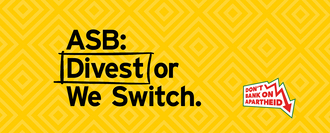
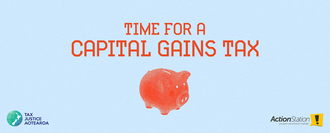
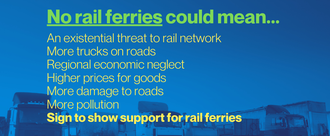.png)
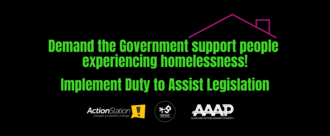.png)
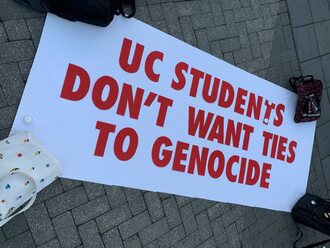

.jpg)


